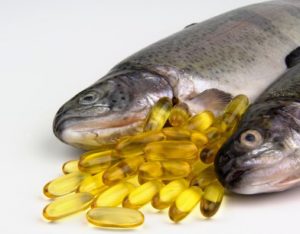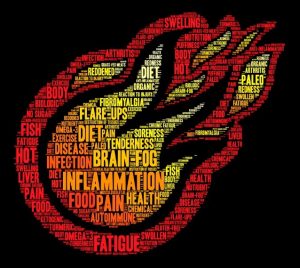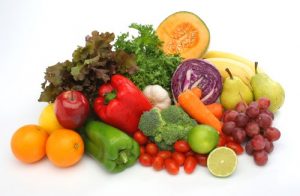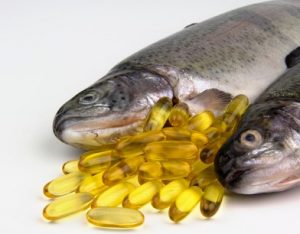Which Diet Should You Choose?
Author: Dr. Stephen Chaney
![]() Many of you started 2023 with goals of losing weight and/or improving your health. In many cases, that involved choosing a new diet. That was only 6 weeks ago, but it probably feels like an eternity.
Many of you started 2023 with goals of losing weight and/or improving your health. In many cases, that involved choosing a new diet. That was only 6 weeks ago, but it probably feels like an eternity.
For many of you the “bloom” has gone off the new diet you started so enthusiastically in January.
- Perhaps the diet isn’t working as well as advertised…
- Perhaps the diet is too restrictive. You are finding it hard to stick with…
- Perhaps you are always hungry or constantly fighting food cravings…
- Perhaps you are starting to wonder whether there is a better diet than the one you chose in January…
- Perhaps you are wondering whether the diet you chose is the wrong one for you…
If you are rethinking your diet, you might want to know which diets the experts recommend. Unfortunately, that’s not as easy as it sounds. The diet world has become just as divided as the political world.
Fortunately, you have an impartial resource. Each year US News & World Report invites a panel of experts with different points of view to evaluate popular diets. They then combine the input from all the experts into rankings of the diets in various categories.
If you are still searching for your ideal diet, I will summarize the US News & World Report’s “Best Diets In 2023”. For the full report, click on this link.
How Was This Report Created?
 US News & World Report recruited a panel of 30 nationally recognized experts in diet, nutrition, obesity, food psychology, diabetes, and heart disease to review the 24 most popular diets.
US News & World Report recruited a panel of 30 nationally recognized experts in diet, nutrition, obesity, food psychology, diabetes, and heart disease to review the 24 most popular diets.
The diets evaluated are not the same each year. Last year they evaluated the top 40 most popular diets. This year they only reviewed the top 24.
That means some good diets were left off the list. For example, the vegan diet is very healthy, but it is also very restrictive. Very few people follow a pure vegan diet, so it didn’t make the top 24 most popular. However, this year’s list did include several primarily plant-based diets that are more popular with the general public.
The panel is also not the same each year. Some experts are rotated off the panel, and others are added. The experts rate each diet in seven categories:
- How easy it is to follow.
- Its ability to produce short-term weight loss.
- Its ability to produce long-term weight loss.
- its nutritional completeness.
- Its safety.
- Its potential for preventing and managing diabetes.
- Its potential for preventing and managing heart disease.
They converted the experts’ ratings to scores 5 (highest) to 1 (lowest). They then used these scores to construct eleven sets of Best Diets rankings:
- Best Diets Overall ranks diets on several different parameters, including whether all food groups are included in the diet, the availability of the foods needed to be on the diet and the use of additional vitamins or supplements. They considered if the diet was evidence-based and adaptable to meet cultural, religious, or other personal preferences. In addition, the criteria also included evaluation of the prep and planning time required for the diet and the effectiveness of the diet for someone who wants to get and stay healthy.
- Best Plant-Based Diets used the same approach as Best Diets Overall to rank the eight plans emphasizing minimally processed foods from plants that were included in this year’s ratings.
- Best Commercial Diet ratings used the same approach to rank 15 commercial diet programs that require a participation fee or promote the use of branded food or nutritional products.
- Best Long-Term Weight-Loss Diet ratings were generated by combining the safety of the rate of weight loss promoted and the likelihood of the plan to result in successful long-term weight loss and maintenance of weight loss.
- Best Fast Weight-Loss Diets were scored on their effectiveness for someone who wants to lose weight in three months or less.
- Best Diabetes Diet ratings were calculated equally from the effectiveness of the diet for someone who wants to lower risk factors for diabetes, the nutritional quality of the diet, and research evidence-based support for the diet.
- Best Heart-Healthy Diet ratings were calculated equally from the effectiveness of the diet for someone who wants to lower risk factors for hypertension and other forms of heart disease, the nutritional quality of the diet, and evidence-based support for the diet.
- Best Diets for Bone and Joint Health were calculated equally on the effectiveness of the diet for someone who wants to lower their risk factors for inflammation and improve bone and joint health, as well as the nutritional quality and research evidence-based support for the diet.
- Best Diets for Healthy Eating combines nutritional completeness and safety ratings, giving twice the weight to safety. A healthy diet should provide sufficient calories and not fall seriously short on important nutrients or entire food groups.
- Easiest Diets to Follow represents panelists’ averaged scores for the relevant lifestyle questions, including whether all food groups are included and if the recommended foods are readily available at the average supermarket.
- Best Family-Friendly Diets were calculated equally on their adaptability for the whole family, including cultural, religious, and personal preferences, the time required to plan and prep, nutritional value and access to food at any supermarket.
Which Diets Are Best In 2023?
 Are you ready? If this were an awards program, I would be saying “Envelop please” and would open the envelop slowly to build suspense.
Are you ready? If this were an awards program, I would be saying “Envelop please” and would open the envelop slowly to build suspense.
However, I am not going to do that. Here are the top 3 and bottom 3 diets in each category (If you would like to see where your favorite diet ranked, click on this link.
[Note: I excluded commercial diets from this review. (I have a brief discussion of commercial diets below). If you notice a number missing in my summaries, it is because I eliminated one or more commercial diet from my summary.]
Best Diets Overall
The Top 3:
#1: Mediterranean Diet. The Mediterranean diet has been ranked #1 for 6 consecutive years.
#2 (tie): DASH Diet (This diet was designed to keep blood pressure under control, but you can also think of it as an Americanized version of the Mediterranean diet.)
#2 (tie): Flexitarian Diet (A flexible semi-vegetarian diet).
The Bottom 3:
#20: Keto Diet (A high protein, high fat, very low carb diet designed to achieve ketosis).
#21: Atkins Diet (The granddaddy of the high animal protein, low carb, high fat diets).
#24: Raw Food Diet (A diet based on eating foods that have not been cooked or processed).
Best Plant-Based Diets Overall
The Top 3:
#1: Mediterranean Diet.
#2: Flexitarian Diet.
#3: MIND Diet (This diet is a combination of Mediterranean and DASH but is specifically designed to reduce cognitive decline as we age.)
The Bottom 3:
Since only 8 diets were included in this category, even the bottom 3 are pretty good diets, so I did not include a “list of shame” in this category.
Best Long-Term Weight-Loss Diets
The Top 3:
#1: DASH Diet
#2 (tie): Volumetrics Diet (A diet based on the caloric density of foods).
#2 (tie): Mayo Clinic Diet (A diet designed to establish lifelong healthy eating habits).
The Bottom 3:
#22 (tie): Keto Diet.
#22 (tie): Atkins Diet.
#24: Raw Food Diet.
Best Fast Weight-Loss Diets
The Top 3:
#1: Keto Diet
#2: Atkins Diet
#7 (tie): Mayo Clinic Diet
#7 (tie): South Beach Diet
#7 (tie): Volumetrics Diet
The Bottom 3:
The diets at the bottom of this list were designed for health and weight maintenance rather than rapid weight loss, so I did not include a “list of shame” in this category.
Best Diabetes Diets
The Top 3:
#1: DASH Diet
#2: Mediterranean Diet
#3: Flexitarian Diet
The Bottom 3:
#20: Atkins Diet
#21: Paleo Diet (A diet based on what our paleolithic ancestors presumably ate. It restricts grains and dairy and is heavily meat-based).
#22: Raw Food Diet.
Best Heart-Healthy Diets
#1: DASH Diet
#2: Mediterranean Diet
#3 (tie): Ornish Diet (A whole food, semi-vegetarian diet designed to promote heart health).
#3 (tie): Flexitarian Diet
The Bottom 3:
#22 (tie): Raw Foods Diet
#22 (tie): Paleo Diet
#24: Keto Diet
Best Diets for Bone and Joint Health
The Top 3:
#1 (tie): DASH Diet
#1 (tie): Mediterranean Diet
#3: Flexitarian Diet
The Bottom 3:
#21 (tie): Raw Foods Diet
#21 (tie): Paleo Diet
#22: Atkins Diet
#23: Keto Diet
Best Diets for Healthy Eating
The Top 3:
#1: Mediterranean Diet
#2: DASH Diet
#3: Flexitarian Diet
The Bottom 3:
#22: Keto Diet
#23: Atkins Diet
#24: Raw Foods Diet
The Top 3:
#1 (tie): Flexitarian Diet
#1 (tie): TLC Diet (This diet was designed by the NIH to reduce cholesterol levels and promote heart health.)
#3 (tie): Mediterranean Diet
#3 (tie): DASH Diet
The Bottom 3:
#19: Atkins Diet
#20: Keto Diet
#22: Raw Foods Diet
Which Diets Are Best For Rapid Weight Loss?
 There are 2 take-home lessons from the rapid weight loss category:
There are 2 take-home lessons from the rapid weight loss category:
- If you are looking for rapid weight loss, any whole food restrictive diet will do.
-
- Last year’s diet analysis included the vegan diet, and both vegan and keto diets ranked near the top of the rapid weight loss category. Keto and vegan diets are both very restrictive, but they are polar opposites in terms of the foods they allow and restrict.
-
-
- The keto diet is a meat heavy, very low carb diet. It restricts fruits, some vegetables, grains, and most legumes.
-
-
-
- The vegan diet is a very low-fat diet that eliminates meat, dairy, eggs, and animal fats.
-
-
- The Atkins and keto diets toppled this year’s rapid weight loss list, but they were joined by the Mayo Clinic, South Beach, and volumetrics diets. Those diets are also restrictive, but, like the vegan diet, they are very different from the Atkins and keto diets.
-
- I did not include commercial diets that rated high on this list, but they are all restrictive in one way or another.
2) Whole food, very low carb diets like Atkins and keto are good for rapid weight loss, but they rank near the bottom of the list for every healthy diet category.
-
- If you choose to lose weight on the Atkins or keto diets, switch to a healthier diet once you reach your desired weight loss.
Which Diet Should You Choose?
 With rapid weight loss out of the way, let’s get back to the question, “Which Diet Should You Choose?” My recommendations are:
With rapid weight loss out of the way, let’s get back to the question, “Which Diet Should You Choose?” My recommendations are:
1) Choose a diet that fits your needs. That is one of the things I like best about the US News & World Report ratings. The diets are categorized. If your main concern is diabetes, choose one of the top diets in that category. If your main concern is heart health… You get the point.
2) Choose diets that are healthy and associated with long term weight loss. If that is your goal, you will notice that primarily plant-based diets top these lists. Meat-based, low carb diets like Atkins and keto are near the bottom of the lists.
- “Why is that?”, you might ask? The answer is simple. And it’s not that all 30 experts were prejudiced against low carb diets. It’s that the major primarily plant-based diets like Mediterranean, DASH, and flexitarian are backed by long-term clinical studies showing they are healthy and significantly reduce the risk of diabetes, heart disease, and other chronic diseases.
- On the other hand, there are no long-term studies showing the Atkins and keto diets are healthy long term. And since the Atkins diet has been around for more than 50 years, the lack of clinical evidence that it is healthy long term is damming.
3) Choose diets that are easy to follow. The less-restrictive primarily plant-based diets top this list – diets like Mediterranean, DASH, MIND, and flexitarian. They are also at or near the top of almost every diet category.
4) Choose diets that fit your lifestyle and dietary preferences. For example, if you don’t like fish and olive oil, you will probably do much better with the DASH or flexitarian diet than with the Mediterranean diet.
5) Finally, focus on what you have to gain, rather than on foods you have to give up.
- On the minus side, none of the diets include sodas, junk foods, and highly processed foods. These foods should go on your “No-No” list. Sweets should be occasional treats and only as part of a healthy meal. Meat, especially red meat, should become a garnish rather than a main course.
- On the plus side, primarily plant-based diets offer a cornucopia of delicious plant foods you probably didn’t even know existed. Plus, for any of the top-rated plant-based diets, there are websites and books full of mouth-watering recipes. Be adventurous.
What About Commercial Diets?
I chose not to review commercial diets by name, but let me make a few observations.
- If you look at the gaps in my lists, it should be apparent that several commercial diets rank near the top for fast weight loss, but near the bottom on most healthy diet lists.
- I do not recommend commercial diets that rely on ready-to-eat, low-calorie, highly processed versions “of your favorite foods”.
-
- These pre-packaged meals are expensive. Unless you are a millionaire, you won’t be able to afford these meals for the rest of your life.
-
- These pre-packaged meals are not teaching you healthy eating habits that will allow you to keep the weight off.
- If you wish to spend your hard-earned dollars on a commercial diet, choose a diet that:
-
- Relies on whole foods from all 5 food groups.
-
- Teaches and provides support for the type of lifestyle change that leads to permanent weight loss.
- Meal replacement shakes can play a role in healthy weight loss if:
-
- They are high quality and use natural ingredients as much as possible.
-
- They are part of a holistic lifestyle change program.
The Bottom Line
For many of you the “bloom” has gone off the new diet you started so enthusiastically in January. If you are rethinking your diet, you might want to know which diets the experts recommend. Unfortunately, that’s not as easy as it sounds. The diet world has become just as divided as the political world.
Fortunately, you have an impartial resource. Each year US News & World Report invites a panel of experts with different points of view to evaluate popular diets. They then combine the input from all the experts into rankings of the diets in various categories. In the article above I summarize the US News & World Report’s “Best Diets In 2023”.
There are probably two questions at the top of your list.
#1: Which diets are best for rapid weight loss? Here are 2 general principles:
- If you are looking for rapid weight loss, any whole food restrictive diet will do.
2) If you choose to lose weight on the Atkins or keto diets, switch to a healthier diet once you reach your desired weight loss. Atkins and keto diets are good for rapid weight loss, but they rank near the bottom of the list for every healthy diet category.
#2: Which diet should you choose? Here the principles are:
- Choose a diet that fits your needs.
2) Choose diets that are healthy and associated with long term weight loss.
3) Choose diets that are easy to follow.
4) Choose diets that fit your lifestyle and dietary preferences.
5) Finally, focus on what you have to gain, rather than on foods you have to give up.
For more details on the diet that is best for you and my thoughts on commercial diets, read the article above.



























